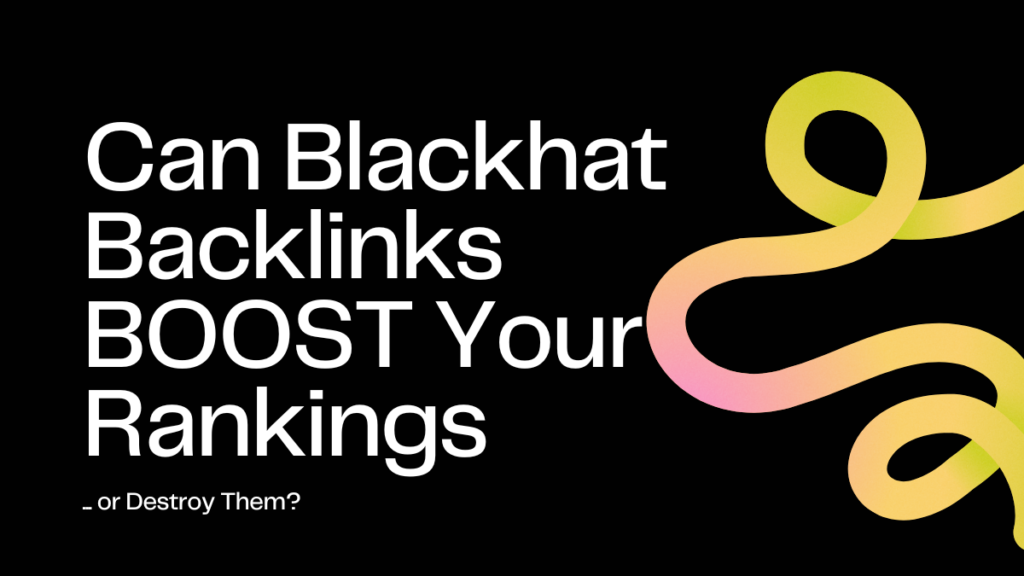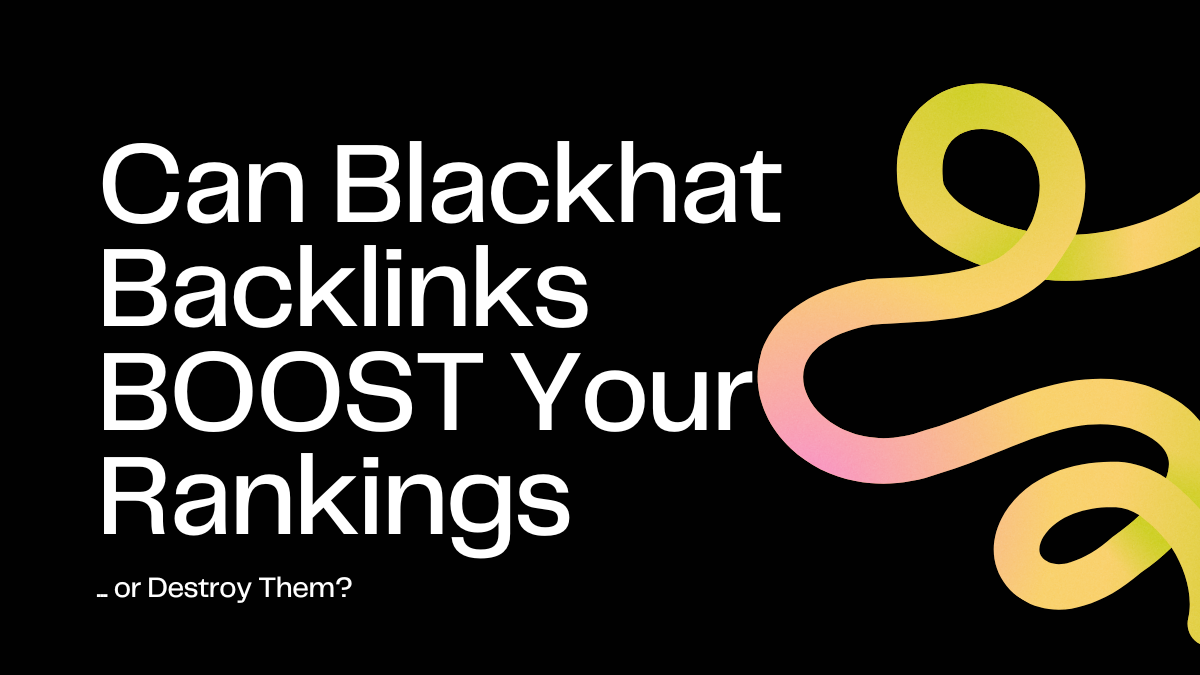In the fast-paced world of SEO (Search Engine Optimization), there’s always the temptation to take shortcuts to boost your website’s ranking. It seems like everyone around you is doing it, right? Blackhat backlinks are one such shortcut, promising quick wins but carrying significant risks. So, should you give in to temptation, or resist? Let’s dive in and find out.
What Are Blackhat Backlinks?
Blackhat backlinks are links to your website that are created using manipulative tactics that violate search engine guidelines. These tactics often involve shady deals, low-quality sites, or straight-up spamming to artificially inflate the number of links pointing to your site. The goal is to trick search engines into thinking your website is more popular and authoritative than it really is.

Examples of Blackhat Backlink Techniques
Let’s look at some common dirty tricks:
- Private Blog Networks (PBNs): Imagine owning a network of websites designed solely to link to your main website. Shady, right? Search engines hate this, as it’s pure manipulation.
- Link Farms: Websites packed with low-quality content and tons of unrelated links. Their only purpose is to sell links, diluting your site’s authority.
- Blog Comment Spam: Posting irrelevant comments on blogs with links back to your site for that sneaky, undeserved backlink.
- Forum Spam: Similar to comment spam, but instead of blogs, these links go in forum posts for quick visibility.
The Temptation: Why People Use Blackhat Backlinks
- Fast Results: Blackhat techniques can lead to temporary boosts in rankings. It can be tempting when you’re desperate for quick wins.
- Laziness: Let’s face it, building high-quality backlinks takes effort. Blackhat tactics are an effortless shortcut… initially.
- Misinformation: Lots of shady “SEO experts” sell the dream of quick rankings with blackhat backlinks, preying on businesses who don’t know any better.
The Harsh Realities: Why Blackhat Backlinks Are a BAD Idea
- Google Penalties: Search engines like Google are constantly improving their algorithms to detect manipulative tactics. Get caught using blackhat backlinks, and your website could be penalized or even removed from search results entirely. It’s NOT worth it!
- Damaged Reputation: Imagine if potential customers found out you were using shady tactics to manipulate rankings – they’d lose trust in your brand.
- Short-Term Gains, Long-Term Pain: The initial boost in rankings is fleeting. Eventually, search engines catch up, and your site will tank.
- Waste of Resources: The time and money spent on blackhat backlinks could be invested in legitimate, long-term SEO strategies that bring sustainable results.
Blackhat Backlinks vs. White Hat Backlinks
White hat backlinks are the way to go! They’re earned organically through high-quality content, outreach, and relationship building. Here’s the difference:
- Blackhat: Manipulative, risky, short-sighted.
- White Hat: Ethical, sustainable, search engine safe.
Focus on Quality: The Key to Sustainable SEO Success
Instead of risking your website’s reputation with blackhat backlinks, focus on creating valuable, informative content that attracts backlinks naturally. This includes:
- In-Depth Blog Posts: Share your expertise and offer unique insights in long-form articles.
- Guest Blogging: Write high-quality content for trustworthy websites in your industry.
- Infographics and Visuals: Make complex information engaging and shareable.
Blackhat backlinks might seem tempting at first, but they’re a toxic trap. The long-term consequences for your website are severe, and they completely undermine building a legitimate online authority. Stick to the ethical, long-term strategies, folks!
Summary
Blackhat backlinks are a risky gamble. While they might promise quick wins, the potential damage to your website’s reputation and search rankings far outweighs any temporary benefits. Focus on building high-quality, legitimate backlinks through valuable content and outreach for long-term SEO success.
FAQs
- Can I recover from a blackhat backlink penalty? Yes, but it takes time and effort. You’ll need to identify and disavow harmful backlinks (using tools like Google Search Console), and focus on building high-quality, legitimate backlinks.
- How can I tell if a website is low-quality and potentially harmful? Look for signs like thin content, spammy keywords, irrelevant niche, or a suspicious domain name.
- Someone is offering to build backlinks for me cheaply. Should I do it? If something sounds too good to be true, it most likely is. Cheap backlinks are often low-quality and could lead to Google penalties.
- What’s the risk of not taking action against blackhat backlinks? If you ignore them, your website’s rankings will continue to suffer. It’s crucial to address these links proactively.
- I’ve accidentally built some blackhat backlinks in the past. What should I do? Don’t panic! Start by identifying these backlinks and disavowing them. Create a plan to focus on building high-quality backlinks going forward.



